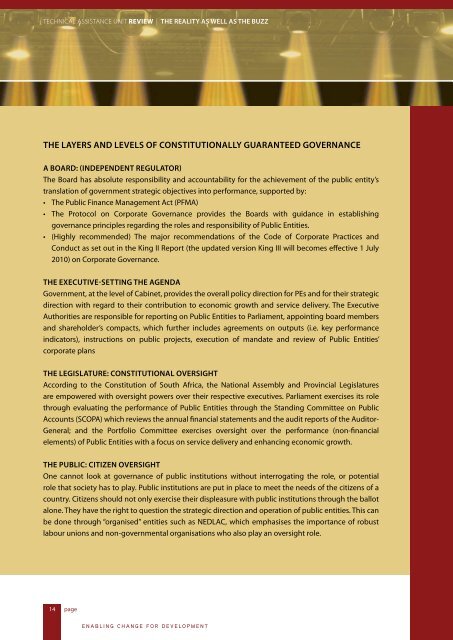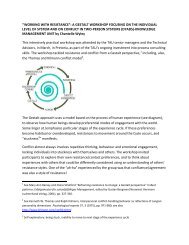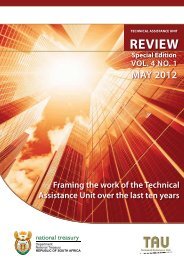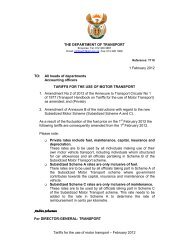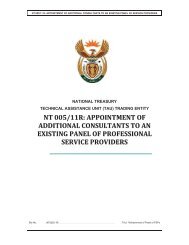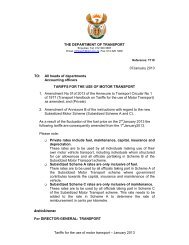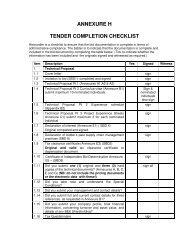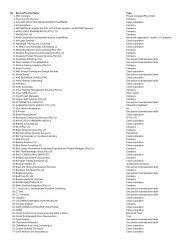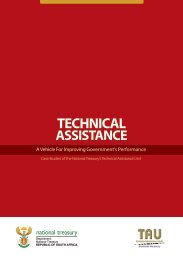Review 3 final 2 - TAU - National Treasury
Review 3 final 2 - TAU - National Treasury
Review 3 final 2 - TAU - National Treasury
You also want an ePaper? Increase the reach of your titles
YUMPU automatically turns print PDFs into web optimized ePapers that Google loves.
TECHNICAL ASSISTANCE UNIT REVIEW | The Reality as well as the Buzz<br />
The Layers and Levels of constitutionally guaranteed governance<br />
A Board: (Independent Regulator)<br />
The Board has absolute responsibility and accountability for the achievement of the public entity’s<br />
translation of government strategic objectives into performance, supported by:<br />
• The Public Finance Management Act (PFMA)<br />
• The Protocol on Corporate Governance provides the Boards with guidance in establishing<br />
governance principles regarding the roles and responsibility of Public Entities.<br />
• (Highly recommended) The major recommendations of the Code of Corporate Practices and<br />
Conduct as set out in the King II Report (the updated version King III will becomes effective 1 July<br />
2010) on Corporate Governance.<br />
The Executive-Setting the Agenda<br />
Government, at the level of Cabinet, provides the overall policy direction for PEs and for their strategic<br />
direction with regard to their contribution to economic growth and service delivery. The Executive<br />
Authorities are responsible for reporting on Public Entities to Parliament, appointing board members<br />
and shareholder’s compacts, which further includes agreements on outputs (i.e. key performance<br />
indicators), instructions on public projects, execution of mandate and review of Public Entities’<br />
corporate plans<br />
The Legislature: Constitutional Oversight<br />
According to the Constitution of South Africa, the <strong>National</strong> Assembly and Provincial Legislatures<br />
are empowered with oversight powers over their respective executives. Parliament exercises its role<br />
through evaluating the performance of Public Entities through the Standing Committee on Public<br />
Accounts (SCOPA) which reviews the annual financial statements and the audit reports of the Auditor-<br />
General; and the Portfolio Committee exercises oversight over the performance (non-financial<br />
elements) of Public Entities with a focus on service delivery and enhancing economic growth.<br />
The Public: Citizen Oversight<br />
One cannot look at governance of public institutions without interrogating the role, or potential<br />
role that society has to play. Public institutions are put in place to meet the needs of the citizens of a<br />
country. Citizens should not only exercise their displeasure with public institutions through the ballot<br />
alone. They have the right to question the strategic direction and operation of public entities. This can<br />
be done through “organised” entities such as NEDLAC, which emphasises the importance of robust<br />
labour unions and non-governmental organisations who also play an oversight role.<br />
14<br />
page<br />
Enabling change for development


